Jacqueline Ay
Bio-techne
Germany
EMBO Practical Course
Proof of COVID-19 vaccination or recovery is required to attend this on-site course. Please see EMBL’s COVID-19 safety policy for on-site events.
Circular RNAs (CircRNAs) are a rediscovered class of RNA species that originate from back-splicing events, which have been reported across all domains of life. Many circular RNAs are stable, abundant and conserved between species. They exhibit context-dependent expression patterns, which are often linked to disease states. Validated circular RNA functions are numerous and range from regulation of transcription and splicing to RNA/protein sponging and scaffolding. However, CircRNAs are by and large the most underexplored class of all non-coding RNAs. This course will meet the specific need to explore complexity, distribution, function and mechanisms of circRNA action experimentally and computationally.
The presented methods and approaches are widely applicable to all organisms beyond standard models. Lectures will cover the technological background of circular RNA research and present the latest advancements from biology, chemistry and medicine. The practical part will include detection and quantification of circRNAs by low- and high-throughput methods, data analysis and integration as well as comprehensive computational assessment of circRNA candidates, function prediction and experimental design of follow-up experiments.
This course is intended for PhD students and young Postdoctoral researchers.
Participants will go through all wet-lab steps required for preparation of circRNA-seq libraries and will be introduced to basic bioinformatics required for analyses of circRNA-seq data.
Bio-techne
Germany
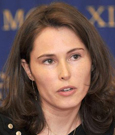
University of Trento
Italy
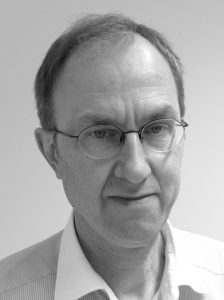
University of Giessen
Germany
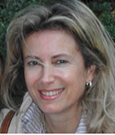
University of Rome
Italy
University Hospital Dusseldorf
Germany
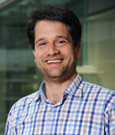
University Hospital Heidelberg
Germany
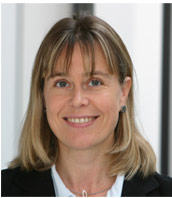
Goethe-University Frankfurt
Germany
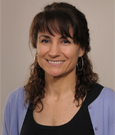
National Institutes of Health
USA
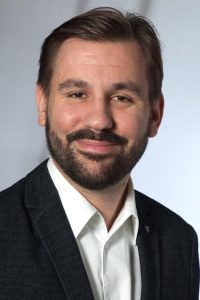
University of Arizona
USA
Brandeis University
USA
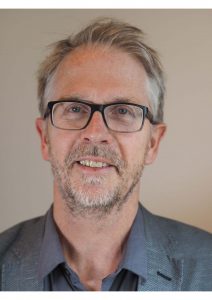
Aarhus University
Denmark
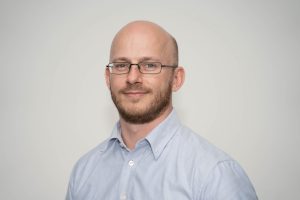
omiics
Denmark

EMBL Heidelberg
Germany
Bio-Rad
Germany
University Hospital Heidelberg
Germany
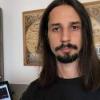
University of Rome
Italy

University of Rome
Italy

University Hospital Heidelberg
Germany

University of Arizona
USA
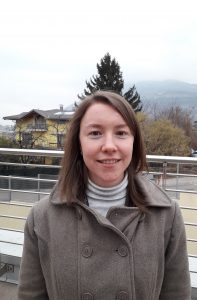
University of Trento
Italy
University Hospital Heidelberg
Germany
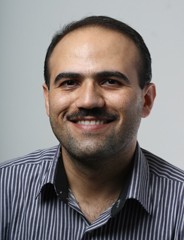
Aarhus University
Denmark
University of Rome
Italy
Bio-Rad
Germany
University of Trento
Italy
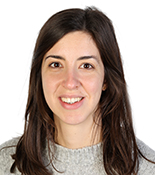
EMBL Heidelberg
Germany
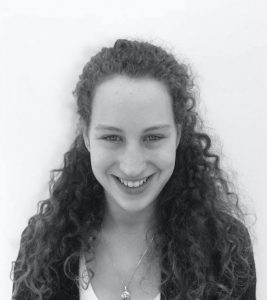
University of Ghent
Belgium

University of Trento
Italy

University of Rome
Italy

University Hospital Heidelberg
Germany

Training Lab Technician
EMBL Heidelberg
Germany
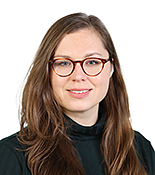
Course and Conference Officer
EMBL Heidelberg
Germany
Got something to say? Tweet it with #EMBOCircRNAs
| Time | Speaker | Location |
|---|---|---|
| 12:30 | Bus from ISG to EMBL | Hotel entrance |
| 13:00 – 15:00 | Welcome and breaking the ice activity incl. speed networking session and light lunch, housenotes | Courtyard room A & B |
| 15:00 – 15:45 | Lecture 1 with Q&A: Circular RNAs, wet-lab & computational tools to detect and analyze them Tobias Jakobi – University of Arizona College of Medicine, USA | Courtyard room A & B |
| 15:45 – 16:30 | Lecture2 with Q&A: Elucidating the function for circRNA in cancer and neuronal development Jørgen Kjems – Aarhus University, Denmark | Courtyard room A & B |
| 16:30 – 17:00 | Coffee break | |
| 17:00 – 17:45 | Lecture 3 with Q&A: circRNAs role in brain development Marie-Laure Baudet – University of Trento, Italy | Courtyard room A & B |
| 17:45 – 18:30 | Overview of wet-lab practical exercise, Q&A on sample QC criteria Karim Rahimi – Aarhus University, Denmark | Courtyard room A & B |
| 18:40 – 19:40 | Dinner | |
| 19:40 – 20:40 | Student presentations I | Courtyard room A& B |
| 20:40 – 20:55 | Departure to Hotel | ATC Entrance |
| Time | Speaker | Location |
|---|---|---|
| 08:15 | Bus from ISG to EMBL | Hotel entrance |
| 08:30 – 09:00 | Housekeeping notes, familiarization with the training lab, protocol introduction, overview of the day | |
| 09:00 – 10:30 | Practical 1: wet-lab practical (cDNA synthesis) Karim Rahimi – Aarhus University, Denmark Isabel Naarmann-de Vries – University Hospital Heidelberg, Germany Laura Villacorta – EMBL Heidelberg, Germany Nayara Azevedo – EMBL Heidelberg, Germany | Training lab A & B |
| 10:30 – 11:00 | Coffee break | |
| 11:00 – 12:30 | Practical 1: wet-lab practical (RNase inactivation and setting up first PCR) Karim Rahimi – Aarhus University, Denmark Isabel Naarmann-de Vries – University Hospital Heidelberg, Germany Laura Villacorta – EMBL Heidelberg, Germany Nayara Azevedo – EMBL Heidelberg, Germany | Training lab A & B |
| 12:30 – 13:30 | Lunch | |
| 13:30 – 15:30 | Practical 1: wet-lab practical (ExoI treatment, first PCR cleanup, run bioanalyzer and setting up second PCR) Karim Rahimi – Aarhus University, Denmark Isabel Naarmann-de Vries – University Hospital Heidelberg, Germany Laura Villacorta – EMBL Heidelberg, Germany Nayara Azevedo – EMBL Heidelberg, Germany | Training lab A & B |
| 15:30 – 16:15 | Lecture 4 with Q&A: solation and characterization of EVs for analysis of circRNAs: Certainties and pitfalls Mirco Castoldi – University Hospital Dusseldorf, Germany | Courtyard room A & B |
| 16:15 – 16:45 | Coffee break | |
| 16:45 – 18:45 | Practical 1: wet-lab practical (Second PCR cleanup, prepare nanopore library, check flowcell and run sequencing) Karim Rahimi – Aarhus University, Denmark Isabel Naarmann-de Vries – University Hospital Heidelberg, Germany Laura Villacorta – EMBL Heidelberg, Germany Nayara Azevedo – EMBL Heidelberg, Germany | Training lab A & B |
| 18:55 – 19:10 | Departure to Hotel | |
| 19:10 – 20:10 | Dinner |
| Time | Speaker | Location |
|---|---|---|
| 08:40 | Bus from ISG to EMBL | Hotel entrance |
| 09:00 – 09:05 | Overview of the day | |
| 09:05 – 09:50 | Lecture 5 with Q&A: Circular RNAs: regulation and function in the vascular system Stefanie Dimmeler – Goethe University Frankfurt, Germany | Courtyard room A & B |
| 09:50 – 10:35 | Lecture 6 with Q&A: Biogenesis and function of circRNAs (remotely) Irene Bozzoni – Sapienza University of Rome, Italy | Courtyard room A & B |
| 10:35 – 11:05 | Coffee break | |
| 11:05 – 12:35 | Practical session 4: Introduction to command line and R language Tobias Jakobi – University of Arizona College of Medicine, USA Alessio Colantoni – University of Rome, Italy Marieke Vromman – University of Ghent, Belgium Harald Wilhelmi – University Hospital Heidelberg, Germany | Computer Training Lab |
| 12:35 – 13:35 | Lunch | |
| 13:35 – 14:20 | Lecture 7 with Q&A (remotely) Morten Venø – omiics, Denmark | Courtyard room A & B |
| 14:20 – 16:20 | Practical session 5: Nanopore data analysis Tobias Jakobi – University of Arizona College of Medicine, USA Thiago Britto-Borges – University Hospital Heidelberg, Germany Alessio Colantoni – University of Rome, Italy Marieke Vromman – University of Ghent, Belgium | Computer Training Lab |
| 16:20 – 16:50 | Coffee break | |
| 16:50 – 17:35 | Lecture 7 with Q&A: circPCNX, a circular RNA involved in modulating cell proliferation (remotely) Myriam Gorospe – National Institute on Aging, USA | Courtyard room A & B |
| 17:35 – 18:35 | Student presentations II | Courtyard room A & B |
| 18:45 – 19:00 | Departure to Hotel | |
| 19:00 – 20:00 | Dinner |
| Time | Speaker | Location |
|---|---|---|
| 08:40 | Bus from ISG to EMBL | Hotel entrance |
| 09:00 – 09:10 | Overview of the day | Courtyard room A & B |
| 09:10 – 09:55 | Lecture 8 with Q&A: Circtools, bioinformatics suite for data analysis Christoph Dieterich – Heidelberg University Hospital, Germany | Courtyard room A & B |
| 09:55 – 10:25 | Coffee break | |
| 10:25 – 12:00 | Practical session 5: Basics of computational NGS data processing (RNA-seq) Tobias Jakobi – University of Arizona College of Medicine, USA Thiago Britto-Borges – University Hospital Heidelberg, Germany Alessio Colantoni – University of Rome, Italy Marieke Vromman – University of Ghent, Belgium | Computer Training Lab |
| 12:00 – 13:00 | Lunch | |
| 13:00 – 15:00 | Practical session 6: Introduction of the circtools workflow and basic back-splice junction detection Tobias Jakobi – University of Arizona College of Medicine, USA Thiago Britto-Borges – University Hospital Heidelberg, Germany Alessio Colantoni – University of Rome, Italy Marieke Vromman – University of Ghent, Belgium | Computer Training Lab |
| 15:00 – 15:30 | Coffee break | |
| 15:30 – 17:00 | Practical session 6: Introduction of the circtools workflow and basic back-splice junction detection Tobias Jakobi – University of Arizona College of Medicine, USA Thiago Britto-Borges – University Hospital Heidelberg, Germany Alessio Colantoni – University of Rome, Italy Marieke Vromman – University of Ghent, Belgium | Computer Training Lab |
| 17:00 – 17:30 | Q&A to Introduction of the FISH protocol Eleonora D’Ambra – University of Rome, Italy Tiziana Santini – University of Rome, Italy | Courtyard room A & B |
| 17:30 – 18:15 | BaseScope presentation Jacqueline Ay – Bio-techne, Germany | Courtyard room A & B |
| 18:15 – 19:15 | Student presentations III | Courtyard room A & B |
| 19:25 – 20:25 | Dinner | |
| 20:25 – 20:40 | Departure to Hotel |
| Time | Speaker | Location |
|---|---|---|
| 08:40 | Bus from ISG to Hotel | Hotel entrance |
| 09:00 – 09:30 | Practical session 2: Basescope FISH pretreatment part I Marie-Laure Baudet – University of Trento, Italy Eleonora D’Ambra – University of Rome, Italy Tiziana Santini – University of Rome, Italy | Training lab A & B |
| 09:30 – 10:00 | Coffee break | |
| 10:00 – 12:00 | Practical session 2: Basescope FISH pretreatment part II Marie-Laure Baudet – University of Trento, Italy Eleonora D’Ambra – University of Rome, Italy Tiziana Santini – University of Rome, Italy | Training lab A & B |
| 12:00 – 13:00 | Lunch | |
| 13:00 – 13:30 | Practical session2: Basescope FISH post-hybridization treatment part I Marie-Laure Baudet – University of Trento, Italy Eleonora D’Ambra – University of Rome, Italy Tiziana Santini – University of Rome, Italy | Training lab A & B |
| 13:30 – 14:00 | Coffee break | |
| 14:00 – 16:30 | Practical session 2: Basescope FISH post-hybridization treatment part II Marie-Laure Baudet – University of Trento, Italy Eleonora D’Ambra – University of Rome, Italy Tiziana Santini – University of Rome, Italy | Training lab A & B |
| 16:30 – 16:45 | Short break | |
| 16:45 – 19:15 | Practical session 2: BaseScope FISH Marie-Laure Baudet – University of Trento, Italy Eleonora D’Ambra – University of Rome, Italy Tiziana Santini – University of Rome, Italy | Training lab A & B |
| 19:25 – 19:40 | Departure to Hotel | |
| 19:40 – 20:40 | Dinner |
| Time | Speaker | Location |
|---|---|---|
| 08:40 | Bus from ISG to EMBL | Hotel entrance |
| 09:00 – 11:00 | Practical session 3: ddPCR Marie-Laure Baudet – University of Trento, Italy Linda Masante – University of Trento, Italy Giorgia Susin – University of Trento, Italy Joergen Bantin – Bio-Rad, Germany Pia Scheu – Bio-Rad, Germany | Training lab A & B |
| 11:00 – 11:30 | Coffee break | |
| 11:30 – 13:00 | Practical session 2: Basescope FISH – observation and result discussion Marie-Laure Baudet – University of Trento, Italy Eleonora D’Ambra – University of Rome, Italy Tiziana Santini – University of Rome, Italy | Training lab A & B |
| 13:00 – 14:00 | Lunch | |
| 14:00 – 15:30 | Practical session 7: Advanced use of circtools ‘reconstruct’, ‘exon’ & ‘enrich’ modules Tobias Jakobi – University of Arizona College of Medicine, USA Alessio Colantoni – University of Rome, Italy Christoph Dieterich – University Hospital Heidelberg, Germany Marieke Vromman – University of Ghent, Belgium | Computer Training Lab |
| 15:30 – 16:00 | Coffee break | |
| 16:00 – 17:00 | Lecture 10: Molecular and Physiological functions of circRNAs Sebastian Kadener – Brandeis University, USA | Courtyard room A & B |
| 17:00 – 18:30 | Practical session 3: ddPCR Marie-Laure Baudet – University of Trento, Italy Linda Masante – University of Trento, Italy Giorgia Susin – University of Trento, Italy Joergen Bantin – Bio-Rad, Germany Pia Scheu – Bio-Rad, Germany | Courtyard room A & B |
| 18:40- 22:00 | Bus downtown, free time & course dinner |
| Time | Speaker | Location |
|---|---|---|
| 08:40 | Bus from ISG to EMBL | Hotel entrance |
| 09:00 – 10:00 | Lecture 10: CircRNAs: Searching for new functions Albrecht Bindereif – Justus Liebig University Giessen, Germany | Courtyard room A & B |
| 10:00 – 10:30 | Coffee break | |
| 10:30- 12:00 | Practical session 8: Design of follow-up experiments with circtools: Targeted Quantification, Knock-Down and Data Interpretation Tobias Jakobi – University of Arizona College of Medicine, USA Thiago Britto-Borges – University Hospital Heidelberg, Germany Alessio Colantoni – University of Rome, Italy Marieke Vromman – University of Ghent, Belgium | Computer Training Lab |
| 12:00 – 13:00 | Lunch | |
| 13:00- 14:30 | Practical session 8: Design of follow-up experiments with circtools: Targeted Quantification, Knock-Down and Data Interpretation Tobias Jakobi – University of Arizona College of Medicine, USA Thiago Britto-Borges – University Hospital Heidelberg, Germany Alessio Colantoni – University of Rome, Italy Marieke Vromman – University of Ghent, Belgium | Computer Training Lab |
| 14:30- 16:00 | Final remarks, open Q&A and farewell | Courtyard room A & B |
| 16:30 | Shuttle bus downtown/to Main Station |
The course is limited to 12 participants. For selection purposes, please note that your application will not be considered without a letter of motivation.
Registration Fees include admission, course materials, COVID-19 safety measures, meals and coffee breaks.
This EMBO course includes accommodation and transportation to and from the ISG Hotel to the venue.
| Academia | €500 |
| PhD Student | €500 |
| Industry | €1000 |
The registration fee should be paid only after acceptance to the course. The results will be announced approximately 2-3 weeks after the application deadline.
After you have logged in and successfully registered, you will receive an email asking you to submit your motivation letter. Click on the link provided and enter your motivation letter in the text box provided. Alternatively you can submit your motivation letter by clicking on the link on the confirmation page directly after registering.
Instructions
Please note:
For more detailed information, follow the instructions provided in our video on how to submit a course motivation letter.
For further information about registration and motivation letter submission please refer to the FAQ page.
Limited financial assistance is provided by the EMBL Advanced Training Centre Corporate Partnership Programme and EMBO in the form of both registration fee waivers and travel grants. Availability is limited to participants attending on-site events in Heidelberg and will be indicated during the abstract or motivation letter submission process.
Your place in the meeting is only confirmed by paying the registration fee, which is mandatory even when receiving a fee waiver.
The fee waiver will cover the registration sum that you have paid to attend the course or conference.
The travel grant will cover the cost of travel (airfare, train, bus, taxi, accommodation, visa, and/or registration fees*) and is provided up to specified caps which are normally as follows:
– up to €400 for participants travelling to an EMBL Course, EMBL Conference or EMBO|EMBL Symposium from within Europe.
– up to €1000 for participants travelling to an EMBL Course, EMBL Conference or EMBO|EMBL Symposium from outside Europe.
– up to €500 for any participant travelling to an EMBO Practical Course or EMBO Workshop.
– up to €1000 for any participant working in Chile, India, Singapore or Taiwan travelling to an EMBO Practical Course or EMBO Workshop.
*Registration fees are only covered for EMBO Practical Courses or EMBO Workshops
The organisers may reduce the grant cap to accommodate more participants. Recipients will be notified of their travel cap amount when they are informed of the outcome of their application. Original receipts must be provided with your signature for all costs incurred within two months of completion of travel. Scanned copies cannot be accepted.
For EMBO Practical Course or EMBO Workshop participants with children, there is the possibility to apply for a childcare grant to offset child care costs incurred by participants or speakers when participating at a course or conference. Eligible costs include fees for a baby-sitter or child-care facility, travel costs for a care giver, or travel costs for taking the child to the meeting etc. Please note that priority will be given to early stage researchers. A maximum amount of 500 EUR can be awarded per participant applying for an EMBO Childcare Grant. In order to apply for this grant for EMBO Workshops, you must be registered by the abstract submission deadline.
Applies to selected courses only. Availability will be indicated during the abstract or motivation letter submission process.
This grant covers costs related to your attendance to the course (registration, travel and accommodation costs). The grant is restricted to PhD students and postdocs who conduct basic biomedical research.
Whether you are eligible to apply for a travel grant, depends on when you received your university entrance qualification (e.g. Abitur, A-Levels, High School Diploma, Final State Examination):
– for PhD and MD students, as well as graduates, the university entrance qualification must not have been obtained more than 11 years ago at the time of the envisaged course
– for postdocs, the university entrance qualification must not have been obtained more than 13 years ago at the time of the envisaged course
You may apply for financial assistance when submitting your abstract for conferences. In your application, you will be asked to answer questions regarding why your lab cannot fund your attendance and how your attendance will make a difference to your career. Application for financial support will not affect the outcome of your registration application.
The scientific organisers will select the recipients of all financial assistance during the motivation letter or abstract selection process. Results will be announced approximately 6-8 weeks before the event start date, however for some events this may be delayed. Selection results do not impact your admission to the meeting. Selection is based on your current work or study location, the reasons for needing financial support and the impact this event will have on your career.
Costs will be reimbursed after the meeting only once a reimbursement form and original receipts (from travel costs) have been received.
See our list of external funding opportunities and information on attending a conference as an event reporter.
For further information about financial assistance please refer to the FAQ page.
Accommodation has been pre-booked for you at the ISG Hotel for the default dates of 23 to 29 (6 nights). Please note that the course registration fee includes coverage of accommodation costs in twin rooms, including breakfasts, for your stay at the ISG but that you will be required to pay an additional cost of 21 EUR per night for a single room. This should be paid by you directly to the ISG during your stay. Any additional nights need to be booked and paid for by you. We recommend that all course participants stay at the ISG Hotel which is the dedicated hotel for the course.
Shuttle buses will go from the ISG Hotel to EMBL and back, mornings and evenings. A bus schedule and location of the bus stops will be made available prior to the meeting.
Address: EMBL Heidelberg, Meyerhofstraße 1, 69117 Heidelberg, Germany
For further information on getting to EMBL Heidelberg visit our Travel Information page.
For enquiries about accommodation and local transportation please refer to the FAQ page.
The EMBL eCampus learning platform will be used to collaborate, communicate and network with all of the course participants. All participants will receive information on how to join shortly before the course. We recommend using Chrome, Safari or Mozilla Firefox browsers for eCampus.
Please find additional information including FAQs, terms and conditions, COVID-19 safety policy and travelling to EMBL on our Information for Participants page.
COVID-19 information for onsite events at EMBL Heidelberg can be found in our COVID-19 FAQs.
Sponsorship Opportunities
We offer a variety of event sponsoring possibilities, with the flexibility to select a set sponsorship package or combine individual sponsorship options to suit your event budget. Discounts are available for companies sponsoring multiple events at EMBL Heidelberg. View other events, or contact sponsorship@embl.de for further information.
If you are interested in becoming a media partner of this event, please visit our media partnerships webpage.
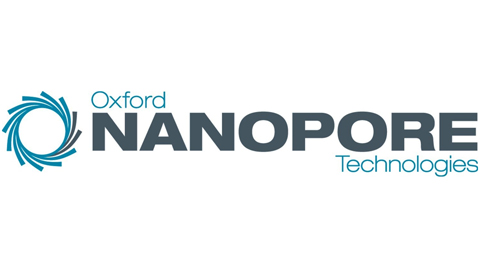
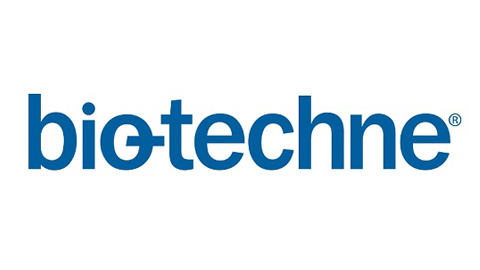
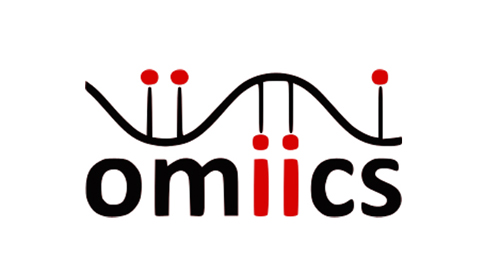
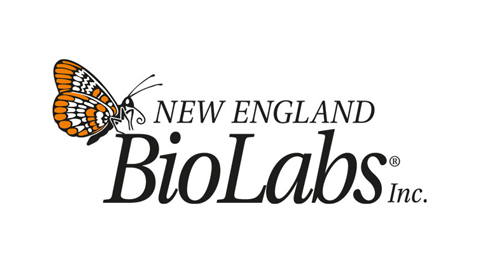

Date: 23 - 29 Apr 2022
Location: EMBL Heidelberg
Deadline(s):
Application: Closed
Organisers:
Contact: Aline Schnieder